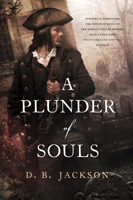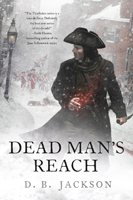The problem isn’t one of desire – I want to work, I want to be productive. Rather, the problem is one of inertia. A body – or in this case a creative mind – at rest will remain at rest; a creative mind in motion will remain in motion.
I’m trying to settle on a single idea for today’s Monday Musing, and I can’t. My thoughts are everywhere. They’re with family and friends, they’re in the impeachment hearings and in Iowa and New Hampshire, they’re in the non-fiction piece I’m writing, they’re in the anthology, they’re in an intriguing idea I have for a new novel, they’re in travel and music and birdwatching and photography.
I’m not even caffeinated…
This isn’t a new problem, of course. It’s actually, to my mind, one of the great challenges we face as writers – and artists and musicians and actors, doctors and lawyers, construction workers and luthiers, students and teachers, and pretty much any other profession we can think of. It’s easy to forget sometimes in today’s culture – a lot of what is said and done, a lot of what appears on our social media feeds and news alerts, seems to involve little or no forethought – but we are cerebral creatures. We spend a lot of our time locked in our own heads, trying to make sense of our thoughts and emotions.
That we are often distracted isn’t surprising. What’s actually remarkable is that we get anything done at all. The hardest thing for me to do each day is get started on my work. I love what I do, but almost invariably when I sit down to write my mind is on anything but writing.
So how do we focus our minds on the task at hand? How do we banish those other thoughts from our minds so that we can work?
Let me address that second question first, because the answer is pretty simple: we don’t. Or at least I don’t. I can’t simply forget about my family. I can’t easily set aside that ongoing dispute with the phone company, or the weekend plans we’re trying to finalize, or the photography project I have in mind that isn’t really work, but about which I’m equally passionate. And so I don’t even try.
It’s not a matter of ridding my mind of extraneous thoughts. That’s not possible. And so the relevant question is really the first one: How do we focus on the task at hand?
Part of the answer involves practice. I’ve been writing for more than twenty-five years, and I’ve learned to compartmentalize my thoughts to some degree. I can set aside my other problems and concerns for a time, and concentrate on the work. I can’t pretend those other things don’t exist, but I can try to relegate them to background noise for a time.
How?
There are a few tricks that work for me, all of them based on this simple truism: The problem isn’t one of desire – I want to work, I want to be productive. Rather, the problem is one of inertia. A body – or in this case a creative mind – at rest will remain at rest; a creative mind in motion will remain in motion. The task then is not to motivate, but rather to get going.
The first trick, taught to me by my wonderful graduate school adviser when I was writing my dissertation, is pretty basic. When I finish my work in the late afternoon or evening, I break off in the middle of a sentence. So the first thing I have to do when I sit down the following morning is finish that phrase. Immediately, I’m working. Some people accomplish the same thing by going back to read and polish what they wrote the day before. I don’t like to do that because I wind up retreating into revision, which doesn’t help me be productive today. Better for me to have that sentence to finish, so that I can get some forward momentum.
Sometimes, though, ending with an unfinished sentence isn’t practical. Sometimes we finish a day with by ending a chapter or section. In this case, I make notes in the document – what comes next, what is the very next thing I want to write. I only need to jot down a few words or phrases – that’s enough, and it does much the same thing as the unfinished phrase: It gives me an entry the next morning and allows me to start working.
A number of my writing colleagues do not listen to music when they work. Others can’t work without something on the stereo. I fall somewhere in between. I can write without music, and I do fine with music playing. But I’m pretty particular: I listen almost exclusively to instrumental music when I write – jazz, bluegrass, occasionally classical. And I choose a musical genre for each particular work (Thieftaker books and stories call for bluegrass; Fearsson stories demand jazz; Islevale flows best to classical.) And when I struggle to get going, music can help a lot. The appropriate music can put me in the necessary head space and move me past those distractions that hinder my process.
When all else fails, there is also surrender. I’m serious. Some distractions can’t be ignored. Some of them – often those relating to the people we love – are more important than work. And quite often, taking a half hour out of our work day to address issues that weigh on our minds can salvage the balance of the day, allowing us to be far more productive than if we had continued to brood.
So those are the techniques I use to get going with my writing. And look! I wrote a Monday Musings post. All I needed was something to get me moving…
Have a good week.










